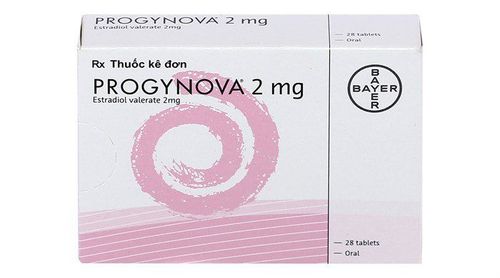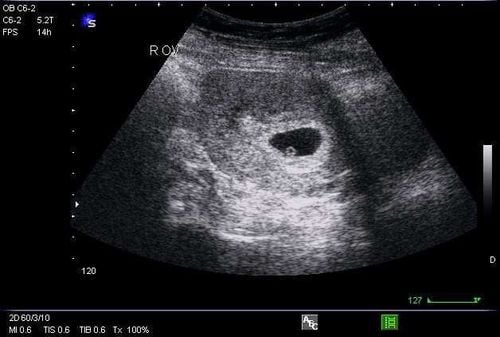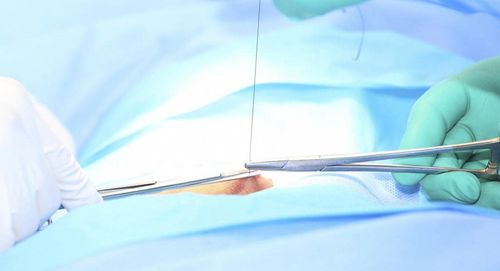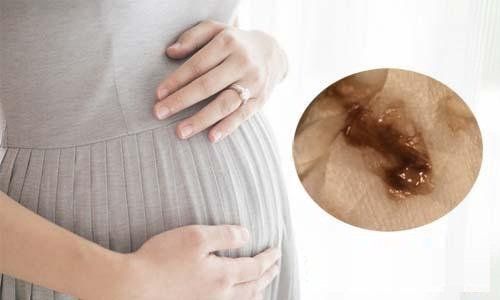The article was professionally consulted by Dr. Nguyen Anh Tu - Doctor of Obstetric Ultrasound - Prenatal Diagnosis - Obstetrics Department - Vinmec Hai Phong International General Hospital.
1. Causes of knee pain after giving birth?
Here are some reasons why mothers face joint pain after giving birth:
The main reason most mothers face acute joint pain after giving birth is due to weight gain occurs during pregnancy. The weight of the fetus continuously increases throughout pregnancy and the mother's body has to work hard to carry a large amount of weight, which puts a lot of pressure on the knee joint, causing knee pain. Even after giving birth, the body returns to its original state, the pain in the knee area still lasts for a while after that.

- Some mothers often experience joint pain during pregnancy due to bone and joint problems such as acute or chronic arthritis. This makes the knee joint even more painful after giving birth.
- If you have a history of joint injury, the pain may return after you give birth.
- There are hormones secreted during pregnancy and childbirth that are important for the safety of mother and baby. These hormones cause the body's ligaments to relax, allowing a mother to carry a large amount of her baby's weight during pregnancy and deliver a successful delivery. After birth, the ligaments need some time to return to their original position. This, can lead to joint pain.
- If a pregnant woman does not exercise regularly during pregnancy or if the mother faces health-related problems or injuries that prevent her from exercising, the risk of joint pain after delivery is quite high.
2. How long does postpartum joint pain last?
As with any disease, recovery time depends on the health of each person. In general, joint pain usually lasts for a few weeks or longer.
In some severe cases, the pain can persist for 4-6 months. If the mother has had a good pregnancy with a healthy delivery and is able to return to healthy eating habits combined with appropriate exercise, the chances of recovery are higher.

3. How to treat postpartum joint pain?
There is no specific treatment for postpartum joint pain. However, some remedies can help relieve the pain:
- Do light exercises on a regular basis. These are not formal exercises, as it is important to keep your body active. This is fundamental in managing joint pain. Exercises that do not put pressure on the joints should be prioritized, such as swimming. In any case, it's best to consult with a professional before sticking to any exercise schedule.
- You can use physical therapy techniques such as massage, acupuncture, acupressure, pain relievers, hot and cold compresses to relieve pain.
- Avoid sitting for a long time because excessive stretching of the pelvis causes pain and accumulation of fat in the lower abdomen. In addition, avoid wearing high heels in the postpartum period.
All of the aches and pains that occur after giving birth are part of a natural process that occurs throughout pregnancy. The mother's body has undergone a major change in nine months. Once you give your body good time to recover and balance relaxation and functioning properly, the pain will begin to decrease and you will feel more comfortable. In case the pain gets worse or you start to observe unusual changes in your body, contact your doctor to rule out any postpartum complications or get pain relief treatment.
Please dial HOTLINE for more information or register for an appointment HERE. Download MyVinmec app to make appointments faster and to manage your bookings easily.














